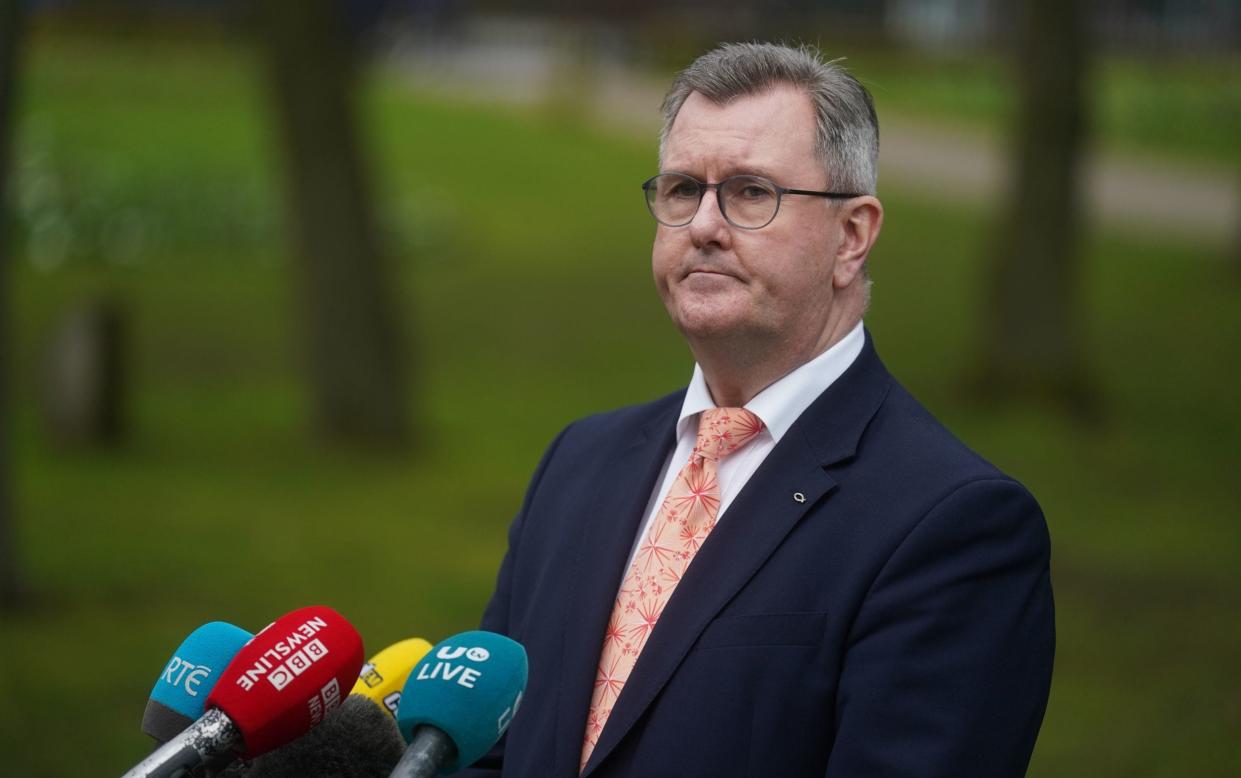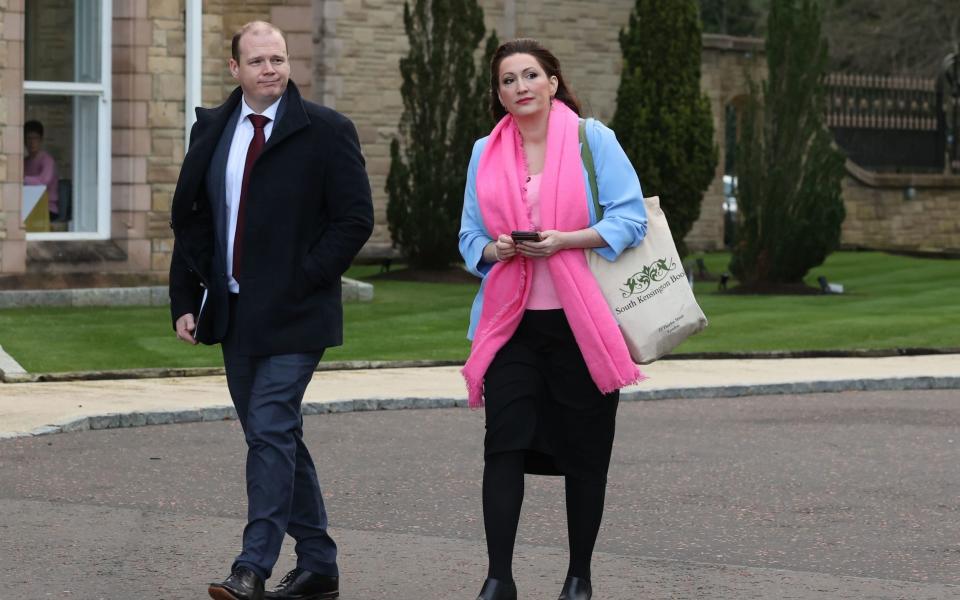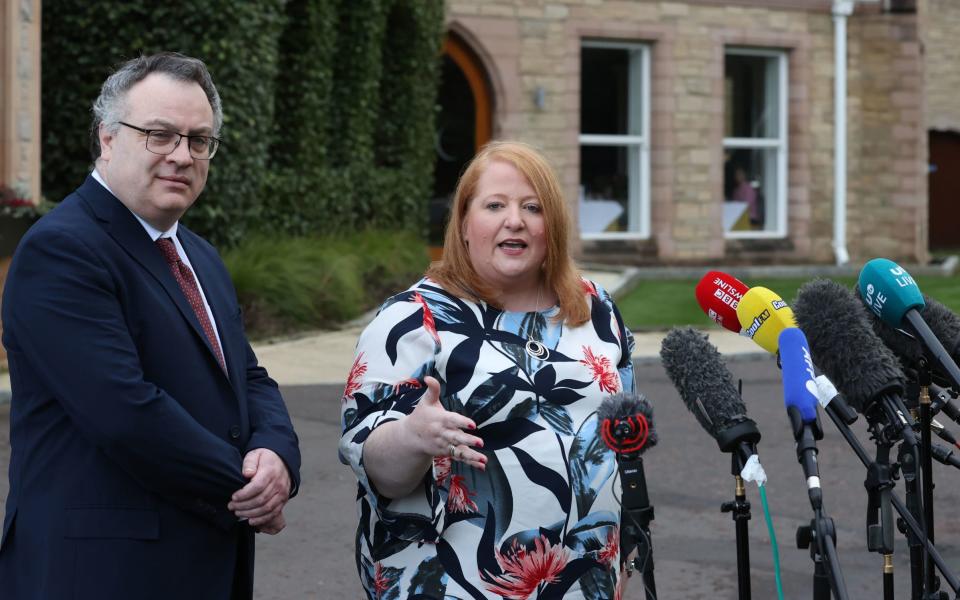The outcomes if the DUP rejects Rishi Sunak’s new Brexit deal

After years of deadlock and frustrating negotiations, a new Brexit deal has been agreed by Rishi Sunak and Ursula von der Leyen.
On Monday, the DUP has hailed "significant progress" made in Rishi Sunak's new Brexit deal but stopped short of supporting it at this stage saying there still remains "key issues of concern."
Sir Jeffrey Donaldson, the DUP leader, said: "The DUP will want to study the detail of what has been published today as well as examining the detail of any and all underpinning legal texts. Where necessary we stand ready to engage with the Government in order to seek further clarification, re-working or change as required."
But what exactly is happening with the Northern Ireland Protocol and what happens if the DUP reject it?
What is happening with the Brexit deal?
The UK and EU secured an agreement over the Northern Ireland Protocol on Monday.
Mr Sunak and Ms von der Leyen met in the UK to discuss the deal, before holding a press conference on Monday. Mr Sunak hailed the pact as a "decisive breakthrough" while Ms von der Leyen said the deal marked a "new chapter" in relations.

What is the Protocol?
It is the agreement that prevents a hard border on the island of Ireland after Brexit and gives Northern Ireland unique access to both the EU and UK market.
The Protocol created the Irish Sea border, where checks are carried out on British goods entering Northern Ireland, which continues to follow hundreds of EU rules.
The checks are needed to ensure that British goods meet EU standards in case they cross the invisible border into the Republic.
Why has it been renegotiated?
The UK argued the border checks were having a chilling effect on British trade to Northern Ireland, and that trade was being diverted to Irish suppliers instead.
The Government also said it needed to change to protect the Good Friday Agreement, which was being undermined because the Protocol had lost the support of unionists.
What do unionists think about the Protocol?
They fear it is undermining their ties to Britain and means they are treated differently to people in the rest of the UK.
The DUP is the largest unionist party in Northern Ireland. A year ago, its First Minister resigned and collapsed the Northern Ireland Assembly in protest at the Protocol.
The DUP has maintained its boycott of Stormont ever since, despite elections in May.

What about the other political parties in Northern Ireland?
Most people in Northern Ireland voted Remain. Apart from the unionists, the other major political parties are supportive of the Protocol, including Sinn Fein, which is the largest party in the province.
Broadly speaking, they recognise it has problems but that it is the best way of solving the problems caused by Brexit on the island of Ireland.
Does the deal have to be put to a vote in Westminster?
Not necessarily. If it was, the Government can rely on Labour support to overcome backbench resistance from the European Research Group of Brexiteer MPs and DUP MPs.
The DUP and ERG are working together in the Commons to try to force as much debate over the Protocol as possible, but the Government can implement the deal regardless.
However, Mr Sunak has insisted that MPs will get a vote on the deal.
Does the PM need the support of Northern Ireland’s political parties for the deal?
Not legally speaking. The Protocol deal is a UK-EU agreement, so Stormont does not have a vote or say on it.
But the DUP can prolong its boycott and prevent the restoration of devolved government.
Why is the DUP boycott a problem?
The UK wanted the Protocol renegotiated to protect the Good Friday Agreement, which established Stormont.
If the deal is not good enough to restore Stormont, it looks like a failure.
Stormont has not been able to use devolved powers to tackle the cost of living crisis and cut the longest NHS queues in the UK.
To make matters worse, the stand-off risks tarnishing April’s celebrations for the 25th anniversary of the Good Friday Agreement.
Joe Biden was expected to come but is unlikely to, unless Stormont is back up and running.

Will the DUP reject or accept the deal?
The DUP will probably reject the Protocol deal, which does not meet its seven tests for a new agreement.
It will be conscious of the risk of bleeding support to the hardline TUV ahead of local elections in May.
The DUP got support from hardline unionists when it was tough on the Protocol, but the TUV has recently gained ground.
If the DUP rejects the deal, what happens next?
Rishi Sunak has a choice. He can impose the deal regardless or he can try to get Brussels to make some last minute concessions to win the DUP around.
Would Brussels go further to placate the DUP?
Possibly. It won’t change the legal text of the Protocol, but it could produce documents clarifying issues or addressing DUP concerns.
What will the DUP do if it doesn’t back the deal?
The boycott of Stormont will continue until at the very least the May elections are over or the DUP gets a deal it can accept.

Can the boycott continue forever?
Fresh Assembly elections will be called in January if a new NI Executive has not been formed. But that deadline has already been pushed back three times.
If there are new elections, the problem won’t be solved. The DUP will still be the largest unionist party, which means it must be one half of a power-sharing coalition with the largest nationalist party, and will still be able to hold Stormont hostage.
So there would be a stand-off?
Yes, the Government will hope the DUP will cave under pressure of building voter anger and the promise of a boost to the NI economy.
The DUP will hope to use their leverage to extract maximum concessions from London and Brussels.
Their refusal to back the deal will damage the Prime Minister’s efforts to sell the new agreement as a success.

 Yahoo News
Yahoo News 
